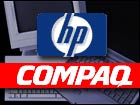|
Hewlett files Compaq proxy
|
 |
December 27, 2001: 3:11 p.m. ET
Co-founder's son details objections to merger in SEC filing.
|
NEW YORK (CNN/Money) - Walter Hewlett, the son of one of Hewlett-Packard's co-founders, outlined his objections to the company's proposed merger with Compaq Computer in a document filed with the Securities and Exchange Commission Thursday.
In the filing, Hewlett, the son of HP founder Bill Hewlett, outlines a series of criticisms against the $22 billion deal, which has been the subject of growing controversy since it was first proposed in early September.
It details the concerns that Hewlett and others already have voiced about the deal, arguing, among other things, that it would increase HP's exposure to the flagging PC industry; increase its exposure to the low-end server business; and jeopardize its strong position in the printing and imaging business.
The filing, called a preliminary proxy statement, also cites the potential risks involved in combining the assets of the two expansive companies in the current economic environment and asserts that the deal would have a negative financial impact on HP shareholders.
| |

|
|
| |
|
|
| |
The combined company would be weaker, not stronger, than HP.
|
|
| |
|
|
| |

|
|
| |
|
|
| |
Walter Hewlett proxy statement against HP/Compaq merger |
|
"The odds are against success in this merger," the filing says. "The complexity of putting two companies together, in a difficult economy, when each company is currently undergoing its own transition, presents daunting and unacceptable challenges."
It also questions the ability of HP and Compaq's top management to effectively handle a merger of such scale and contends that even if their targeted cost synergies are achieved, it is likely that merger-related revenue losses will offset or exceed them.
"The combined company would be weaker, not stronger, than HP," the filing says.
Hewlett has been the most vocal of a key group of shareholders that has come out against the proposed deal.
The board of the David and Lucille Packard Foundation, which holds nearly 10 percent of HP's stock, earlier this month said it likely will vote its shares against the deal. The Packard foundation is headed by Susan Packard Orr, one of the daughters of company co-founder Dave Packard.
David Woodley Packard, the son of HP's co-founder, also has said the Packard Humanities Institute, of which he is chairman and which owns 25 million HP shares, or 1 percent of the company, also likely will vote against the transaction when it is put to the shareholders.
Together, the opponents of the deal hold roughly 18 percent of the stock.
Hewlett-Packard already has filed its own preliminary proxy statement, and executives have gone on the road pitching the proposed deal to shareholders.
In a recent letter to shareholders, Hewlett-Packard CEO Carly Fiorina and Compaq CEO Michael Cappelas argued that Hewlett's opposition to the deal is "based on a static and narrow view of HP and the industry," selectively ignores the potential benefits of the transaction and relies on "faulty financial assumptions."
They say a merger is necessary in order for them to become stronger players in business computing, Internet access devices and printing, and will save $2.5 billion a year.
They also assert that HP's fiscal 2003 operating earnings per share would rise 13 percent following a merger, which they say would create value that exceeds the premium paid for Compaq.
A shareholder vote is expected early next year. 
|
|
|
|
|
|

|

